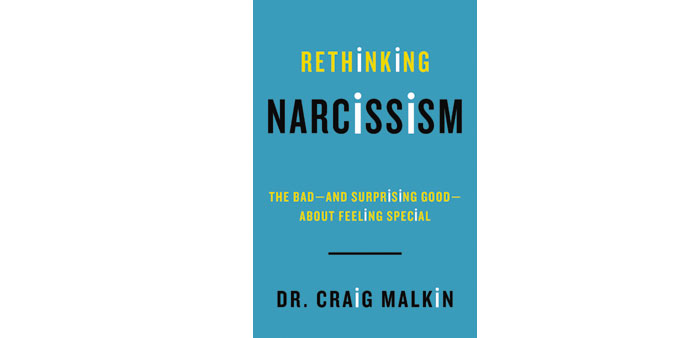Dr Craig Malkin says moderate doses of narcissism are necessary for our self-esteem, relationships and health.
By Jessica Reynolds/Chicago Tribune/TNS
Many people think of narcissism as a poor personality trait and narcissists as people we should try to avoid. Sure, there’s some truth to this, but moderate doses of narcissism are not only good, but also necessary, for our self-esteem, relationships and health, says clinical psychologist Dr Craig Malkin, author of the new book, Rethinking Narcissism: The Bad - and Surprising Good - About Feeling Special (Harper Wave).
Malkin, an instructor at Harvard Medical School, explains how narcissism, the drive to feel special, falls on a spectrum - and having either too little or too much of it can be unhealthy.
“You can think of narcissism kind of like a drug,” Malkin said. “When people become addicted to it, that’s when they venture into becoming narcissists or extreme narcissists.”
The book includes a 30-question survey that allows readers to measure where they fall on the Narcissism Spectrum Scale, an assessment tool developed by Malkin and his colleagues. (You can take a shorter version of this survey at
www.drcraigmalkin.com/the-narcissism-test)
People who fall on the low end of the spectrum are called echoists, named after the nymph Echo in the myth of Echo and Narcissus from Ovid’s Metamorphoses. These are people who shy away from attention and “are convinced that being ordinary is the safest way to live”, Malkin writes.
The book also addresses the root causes of echoism and narcissism, what parents can do to help their children not become narcissists and how to deal with narcissists in the workplace.
We recently spoke with Malkin about his book.
Below is an edited transcript.
Q: Why is having a moderate dose of narcissism healthy?
A: If you feel a little special, it helps you see the world through rose-coloured glasses. It helps you feel more optimistic and persistent in the face of failure. People who are high in healthy narcissism aren’t especially modest, but they don’t brag and they wouldn’t hurt people in order to stand out.
Q: So what’s the difference between healthy narcissism and extreme narcissism?
A: Healthy narcissism is when people can enjoy feeling special just enough to give them energy, help them connect more with people and have a compassionate, generous view of themselves. But when people become addicted to narcissism, that’s when they tip into becoming narcissists, or extreme narcissists. All that matters to these people is how they can feel special. All other considerations are set aside. Unhealthy narcissists can be argumentative, combative, hurtful and extremely entitled.
Q: Is a narcissist born or created?
A: Across research, personality tends to be about 50-50 nature versus nurture. Narcissism is no different. There is a 20-year longitudinal study that identified early precursors for unhealthy narcissism. The researchers followed preschoolers who were overly dramatic and overly aggressive rule-breakers. What they found is that those children didn’t grow up to be narcissists if they had parents who were warm and structuring - authoritative parents. These types of parents talk to their children about their feelings, try to understand what they’re going through and try to provide a sense of security so that when their children are upset, sad, worried or scared, they know their parents are there to help them.

